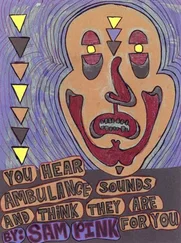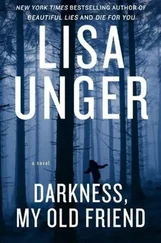She leaned her head against the window for a moment, considered her options: Call her? Chase after her? Leave her be? She decided to leave her to it. Izzy was an unstoppable force. And Linda had children to take care of, to dress and get off to school. More than that, Linda knew that Isabel had to do this; there was no other choice for her. It was the curse of the writer, a feral hunger to understand and by understanding to control.
When Linda was just starting out as a photographer, she’d done a series she called “City Faces.” She’d walked around the city for weeks, just snapping pictures of people-some candid, some with permission-and wound up with a group of portraits that earned her an agent and her first major gallery show in SoHo. She’d asked her sister to write something for the brochure and they went through the photos together.
“Oh my God, Linda,” Izzy said. “Look at her. This is beautiful.” It was a black-and-white shot of an old woman she’d met at a bus stop. Her face was a road map of deep lines, her hair a brittle and unapologetic white, but her eyes were as wide and sharp as a child’s.
“Who was she? What was her story?” Izzy wanted to know.
Linda had been confused, even a little put off by the question.
“Who knows?” she said. “I didn’t talk to her. I just took her picture.”
For Linda, it wasn’t about the story behind the woman. It was about the beauty of that one moment, about capturing it and making it her own. It was about the universe that existed in a single frame. But that wasn’t enough for Isabel. She needed to know about the significant events that led the woman to sit at the bus stop at that precise moment, what she was thinking that put the expression on her face. And if she didn’t know, she’d have to make something up to satisfy herself.
They’d laughed about it, how different they were, how unalike were their individual arts and processes. In the end, Isabel wrote: “My face is what I give to the world. Look closely and you’ll see what the world has given to me.” Of course, it was perfect. Isabel was always pitch perfect whenever she put word to paper.
In Linda’s memory, they seemed very young that afternoon, so excited by Linda’s upcoming show, the publication of Izzy’s first novel right around the corner. They thought, as they always had really, that the world belonged to them. They’d never been called upon to think of themselves any other way. Even the grim tragedy that marked their late childhood hadn’t changed that idea very much.
Linda walked away from the window and stared at her reflection in the mirror above the dresser. Wretched. She’d never been happy with her body (too small at the chest, too wide at the hips) but she’d always liked her face. She’d always been satisfied with her easy prettiness, good skin, well-formed features, shining blue eyes. Recently, though, deeper lines had started to make their debut around her eyes and mouth. Lack of sleep and too much stress were causing her to look haggard and worn out. Even her silky blond hair seemed drier, was losing some of that estrogenic glow. She put her hands to either side of her face and pulled the skin taut to simulate a bad face-lift and made herself laugh.
She’d never thought of herself as vain, but she supposed there were things she’d taken for granted about her looks. And now that those things were fading, she realized that she was very vain indeed. She noticed things about Izzy-her slim middle, the youthful fullness of her face, the smooth skin around her eyes-and it seemed to Linda that there was suddenly a big difference in the way they looked. They’d always been opposites in their coloring, Linda favoring their mother, Isabel their father. But they’d been equal in the timbre and volume of their beauty. Their father’s favorite proud refrain: “The Connelly sisters are lovely and smart.” There wasn’t a brighter one or a prettier one. Linda and Isabel had never felt the urge to compete with each other in those arenas.
Linda would not have believed that two kids and five years could make such a difference in her appearance. But then again, she’d never even thought about her age until recently. Lately, she’d realized that the softness at her belly would not be dissolved by exercise or no-carb torture. There was a sinking to her face that would not be improved without surgery or injections. But she’d always imagined herself as having too much character to succumb to surgical beauty treatments. She couldn’t see herself as one of those vain, awful women who cared more about the lines on their foreheads than about their children, who thought that looking young (not that they looked younger, exactly, just altered) meant a reprieve from the disappointment gnawing at the edges of their lives. How much energy that must take, to fight that losing battle. She was an artist; she’d age with character and grace.
Not that any of it mattered, not really. It was just one in a legion of dark little thoughts, mental gremlins, that could nip and gnaw at her sense of well-being if they were allowed.
Of course, there were bigger problems than her fading youth. How selfish was she to be thinking about such stupid things when Isabel’s life was falling apart? Linda broke away from her reflection, slipped back into bed, and pulled the heavy mass of blankets and comforter around her. She wanted to avoid the day for just a few more minutes, avoid her missing brother-in-law and the fact that her injured sister had just raced into the fray. Normally, she’d be frantic. But for some reason, she just felt drained by the whole matter, as though she’d awakened covered by a blanket of snow. A kind of emotional hypothermia had set in, stiffened her joints, robbed her of energy.
When she received the call yesterday and raced to the hospital, saw her sister pale and unmoving on the stretcher-that awful gash on her head-it felt as though she was living a terrible memory, as if it had all happened before. As afraid and shocked as she’d been before Izzy opened her eyes and started to speak, it was as though she’d been expecting some awful event relating to her sister’s husband all along.
There was something wrong with Marcus Raine; she’d known it from the day she’d first lain eyes upon him. He was worse through the lens, all hard angles and an odd shadow to his eyes. As a photographer, she knew to wait for that millisecond when the face revealed itself, a flicker of the eyes, an involuntary shifting of the muscles in the jaw or forehead. This was the second when pretty people were beautiful, or beautiful people ugly, or cheerful people suddenly haunted. A face is an organic entity; it can’t hold a protective posture forever. It must surface for air. She saw him clearly and early.
She’d tried to talk to Isabel but her sister wasn’t hearing it. Linda realized that she’d have to accept Marcus and hope she was wrong about him, or lose her sister. That’s what happened when the biological family rejects a spouse; a continental drift. If the marriage is successful, the incompatible units slowly move away from one another. Visits become less frequent until there is only the occasional phone call, the obligatory Sunday afternoon get-together, the infrequent, awkward dinner where so much goes unsaid. Linda could see how it would happen, had seen it before with her friends. Isabel was that in love with him. And so Linda, with an almost superhuman effort, bit her tongue and they all moved forward together. The irony was that, five years later, Linda was just starting to let her guard down about Marcus. Erik had always liked him, was beginning to convince her that she’d been mistaken. She was moving beyond just tolerance, even starting to like him a little. She should have known. The lens doesn’t lie.
Читать дальше












